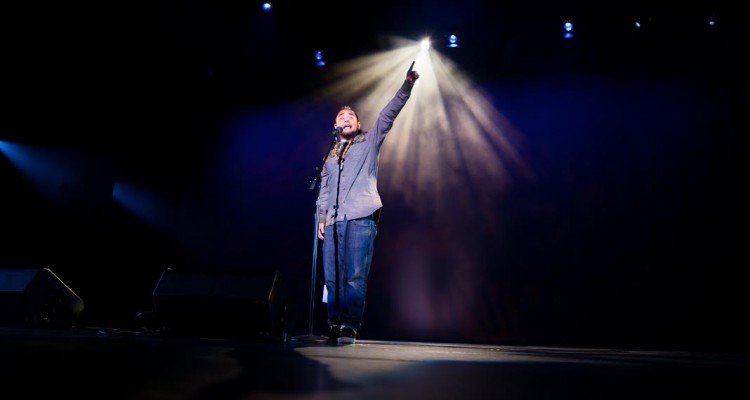When George “G” Yamazawa, Jr., a sixth grade Japanese Buddhist from Durham, North Carolina, plagiarized Eminem by handing in one of the celebrity’s raps for a poetry competition instead of writing his own, his life was changed forever.
But not because he was caught. In fact, Yamazawa won an award in the competition. The 11-year-old realized for the first time that the rappers he had been adoring for years were artists in their own way and could be appreciated by a wide range of audiences. Despite this discovery, Yamazawa still saw more of a future for himself in the visual arts as opposed to the verbal arts. He continued listening to rap from artists like Kendrick Lamar, but put most of his energy into becoming a better dancer.
Two years later, Yamazawa was downloading a track from a musician, Black Ice. What he thought was a song turned out to be a live poetry performance. The then-teenager was completely blown away. “It was amazing, I wanted to do something like that,” he said. The young Buddhist from North Carolina had found a unique way to tell his unparalleled story about growing up as a minority.
Shortly afterward, Yamazawa’s entire high school freshman class traveled to the University of North Carolina to the school’s “A Day of the Poet” fair, an experience that would become another seminal moment in Yamazawa’s life. There were a handful of workshops with poets from all around the country, one of which was Dasan Ahanu. After speaking to Yamazawa, Ahanu connected with his struggles as a young minority experiencing ridicule for practicing a religion other than Christianity in the Bible belt. For the next few years, Ahanu would become a mentor for Yamazawa.
Yamazawa continued to become more obsessed with poetry, and, a few years later, the 17-year-old began a group called “The Sacrificial Poets” with four of his friends. “It was a group of five dudes that just liked doing poetry,” Yamazawa explained. When the group began, there was barely an audience. But that didn’t stop them — the organization continued performing and built a significant following. This group was an extremely influential in Yamazawa’s career. He even went as far to say that “They [the Sacrificial Poets] solidified my love for the arts”. That same year, he had the opportunity to go to a poetry competition and festival called “Brave New Voices,” where he heard and spoke to 50 other poets his age. This was the moment Yamazawa decided to drop everything and pursue his dreams — changing the world one poem at a time.
Yamazawa dropped out of high school and since has spent the past eight years performing all over the world. He has toured in over 40 American cities and five European countries, and has been a featured performer at the Sundance Film Festival, TV One’s “Verses and Flow,” the Pentagon and the White House Initiative for Asian Americans and Pacific Islanders. His latest venture, touring colleges around the country, is what brought him to the lower level of the Barone Campus Center on Tuesday, Jan. 26. Although Yamazawa can rap, his performance was dominated by poetry.
In between poems, Yamazawa was not afraid to make jokes about his race, or what unintentionally racist things “white people” say about the shape of his eyes. He’s been dealing with feeling different because of his race and religion since he was just a child. Yamazawa recalled a time in second grade when a few kids in his class told him he was going to hell because of the religion he practiced and how this made him really question his lifestyle. He had to make a decision — conform to society’s norms or continue the unique walk of his own life. Yamazawa explained in his pieces that the best way to deal with people’s ignorant comments is to laugh along with their stupidity. This bullying from his peers at a young age also made Yamazawa recognize how equal we all are as a human race. It made his love for Buddhism stronger, not weaker. This idea is the basis for most of his poetry and his performance — he is constantly trying to get his audience feeling together, equal and understanding each other.
In the end, Yamazawa said that five years ago he could have never imagined the places life has taken him. The most important thing is to always make new goals and set higher standards for yourself. “Chase whatever it is you’re passionate about,” he said, “follow your dreams to the death”


Leave a Reply